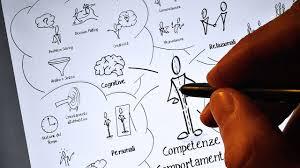Deconstruct the Skill
- Break the skill into various small parts, remembering that every big skill is a collection of many sub-skills.
- Identify the essential sub-skills needed to give you the maximum advantage.
- Practice the most important part that you have discovered, using the 80:20 principle in your learning.
5.73K
18.3K reads
CURATED FROM
IDEAS CURATED BY
The idea is part of this collection:
Learn more about personaldevelopment with this collection
How to break bad habits
How habits are formed
The importance of consistency
Related collections
Similar ideas to Deconstruct the Skill
Deconstruct the skill
...into its basic, fundamental components, to find the most important things to practice first. This shows that very few things actually make a difference in any aspect of our lives, including learning.
Use the Pareto Principle: which describes a goal of generating 80 percent...
Focus On The Few Things Give Most Benefits
The Pareto Principle is also known as the 80-20 Principle and it mainly revolves around the idea that we should focus on the few things that give you the most benefit.
For many events, roughly 80% of the effects come from 20% of the causes. So cho...
How to capitalize on the Zeigarnik effect
- Reduce your tendency to procrastinate. If you have a task you've been avoiding, begin with the smallest thing to be done. The desire to close the loop will help you take small steps to get it done.
- Get people to take note of what you're saying. Try...
Read & Learn
20x Faster
without
deepstash
with
deepstash
with
deepstash
Personalized microlearning
—
100+ Learning Journeys
—
Access to 200,000+ ideas
—
Access to the mobile app
—
Unlimited idea saving
—
—
Unlimited history
—
—
Unlimited listening to ideas
—
—
Downloading & offline access
—
—
Supercharge your mind with one idea per day
Enter your email and spend 1 minute every day to learn something new.
I agree to receive email updates
